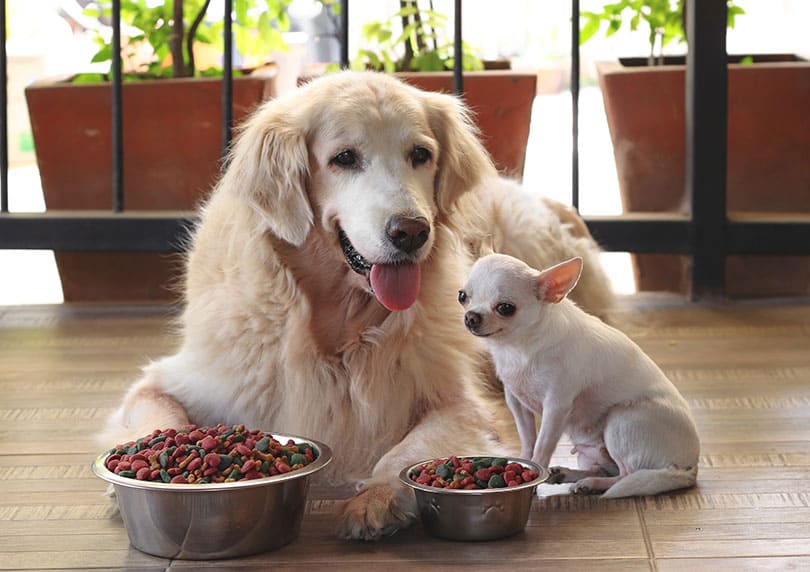The average length of a dog’s small intestine is 4 meters (13 feet) and the average length of the large intestine is 0.6 meters (2 feet). This means that when a dog’s food enters the digestive stage, it has a pretty long way to go before nature calls. That said, food moves through the digestive tract faster in dogs than in humans, and, according to PetMD, this process takes about 8–10 hours for most dogs.
How Long Does It Take for a Dog to Digest Food?
The answer to this question differs depending on a variety of factors like age, health condition, nutrition, and size. In this post, we’ll unravel and address the factors that determine how long it takes for a dog to digest food.
Age
Food moves more quickly through the digestive tract in younger dogs. In puppies, the digestive tract is still not fully developed, so they tend to poop more frequently as a result of food traveling through the digestive tract more rapidly than in adult dogs. It’s not unusual for puppies to make bathroom trips up to five or six times a day.
This slows down as the dog gets older due to needing fewer calories than puppies do and expending less energy. Adult dogs need to use the bathroom anywhere between one and a few times per day on average, and senior dogs even less.
Size
For smaller dogs, the digestive process may take less time (approximately 4 hours), whereas, for larger breeds, it may take more time (closer to the 8-hour mark) due to different lengths in the digestive tract.

Nutrition
The digestive time may vary depending on how much and the type of food your dog eats. It may take longer in dogs who eat mostly dry food, as this passes through their systems at a slower rate. On the other hand, wet food, which has more moisture, passes through more quickly.
It also depends on the quality of the food. Feeding your dog a high-quality, protein-rich dog food as well as hydrating them with plenty of clean, fresh water is more likely to result in a healthy digestive process, whereas low-quality, highly processed foods may cause issues like diarrhea.
Health Issues
If your dog has a gastrointestinal health issue, this may affect their digestion time. Some breeds are more prone to gastrointestinal problems, like Great Danes, German Shepherds, Collies, and Golden Retrievers. Gastrointestinal issues could include inflammation or infection of the intestinal tract, pancreatitis, diarrhea, and constipation. Being overweight may also affect your dog’s digestive process.
Lifestyle
Exercise plays a big role in keeping your dog’s digestive system functioning normally. More active dogs break down food quicker because they’re using more energy, whereas dogs with a more sedentary lifestyle may take longer to digest their food.
Final Thoughts
Bringing it all in, the time it takes for a dog to digest food is typically 8–10 hours according to PetMD, but it varies depending on factors like lifestyle, nutrition, age, size, and any health conditions your dog may have. If you suspect that your dog may have digestive issues, please speak to your vet to determine if there’s a health issue they need treatment for.
Featured Image Credit: Shutterstock














